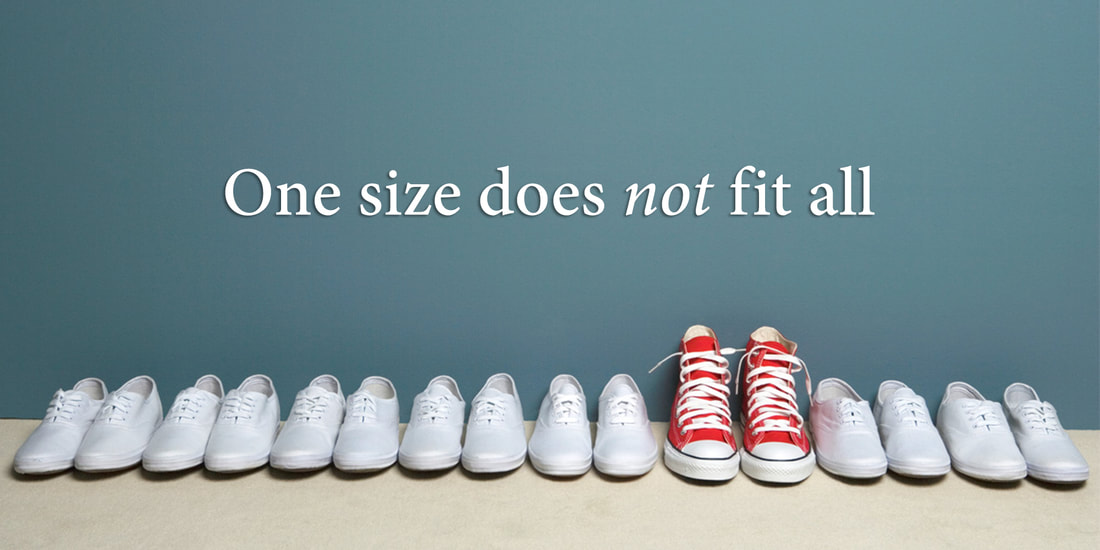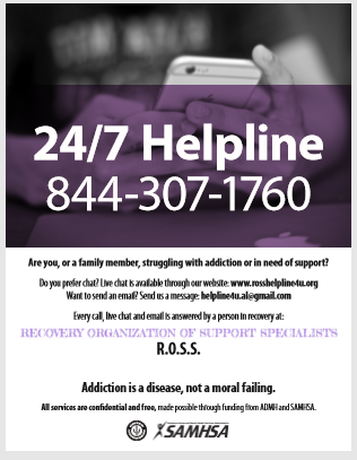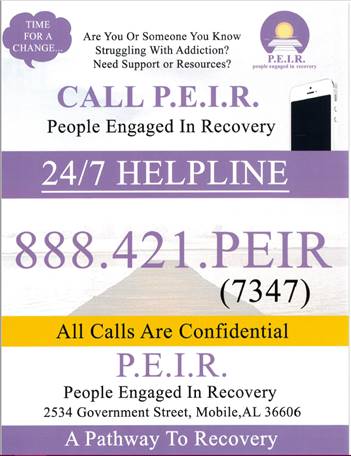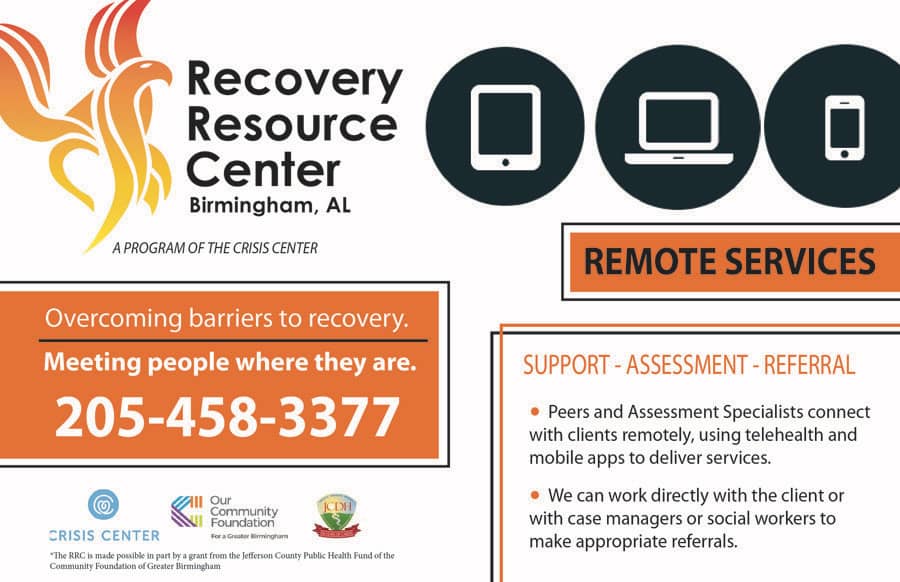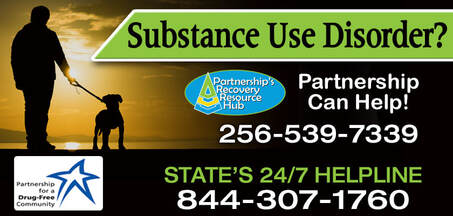The following list of resources is provided as an educational tool ONLY and should NOT be considered a referral or recommendation. We are not endorsing any of the programs included on this list. This list is not vetted and we have not visited the programs in person. Individuals seeking treatment and recovery options should do their own due diligence and research when seeking resources. We try to include all programs that we are aware of on this list as a service to help you in your search for treatment and recovery options. This is not an exhaustive list and there may be programs in the area that are not included here. This list may include programs that are no longer in existence or include links that no longer work.
If you are a treatment provider or recovery support program in Alabama and would like to be on this list, please email us at [email protected] and include details including contact information for your program.
Are you looking for help now? The State of Alabama has a 24 hour/day Helpline (see below) that may be able to help guide you to treatment options via phone, chat or email. In North Alabama, you can contact the Recovery Resource Hub at the Partnership for a Drugfree Community at the number below.
Not One More Alabama is NOT a Treatment Program and we do not provide referrals to treatment. If you are in an emergency situation, please contact 911 immediately. Not One More Alabama does not answer calls on a 24/7 basis or replies to emails and messages immediately and we are not an appropriate resource for immediate help. We DO provide education and support and would be happy to talk to you if you need help navigating the treatment options available to you. If you reach out to us, we will reply at our earliest convenience.
Not One More Alabama is NOT a Treatment Program and we do not provide referrals to treatment. If you are in an emergency situation, please contact 911 immediately. Not One More Alabama does not answer calls on a 24/7 basis or replies to emails and messages immediately and we are not an appropriate resource for immediate help. We DO provide education and support and would be happy to talk to you if you need help navigating the treatment options available to you. If you reach out to us, we will reply at our earliest convenience.
Below are resources you can contact in Alabama that will provide peer support assistance and treatment navigation resources. All of these are good options to begin your search for treatment.
Directories
The Substance Abuse and Mental Health Services Administration (SAMHSA) maintains a complete list of treatment and support options throughout the United States. Use filters for the interactive Treatment Finder to search for various types of treatment programs in our area and throughout the country. The Safe Project Treatment Locator is another good tool that allows you to enter client specific information to locate treatment options. Another excellent resource is Psychology Today which also uses filters to identify providers in your area and articles on mental health and substance use disorders.
There are many paths to recovery designed to meet an individual where he or she IS on the path. Not every individual with a Substance Use Disorder (SUD) will require treatment. Refusal to enter into treatment should not be viewed as an unwillingness to be free of drugs. If you have ever been in a relationship that was unhealthy, you may remember thinking about ending the relationship long before you do it. And when you finally end the relationship, you may grieve over the loss while at the same time you are aware that ending the relationship is what is best for you. Individuals that are imprisoned by their drug addiction are often ambivalent - they are motivated in two opposing directions at the same time. Recommended reading: Beyond Addiction
If you love someone with a SUD, you play a crucial role in their change process. Patience is key. Like any learning process, recovery takes trial and error. Slips or lapses to old behavior patterns are common and should not be viewed as starting over or indicate that treatment has not "worked." This attitude can be defeating to someone in recovery and send them to a full blown relapse. Most of us can identify with "falling off the wagon" when dieting. We grieve over the food or nicotine that once made us feel better. Relapsing into old behaviors does not mean that we don't want a healthier diet. It means that something is missing and food is filling the void.
We believe that kindness and compassion (which is backed by scientific evidence) should replace the old attitude of detachment and allowing someone to "hit bottom." In many cases, there is no time to wait for the bottom.
Remember, people don't just get sober, they learn to be sober. - Center for Motivation and Change
If you love someone with a SUD, you play a crucial role in their change process. Patience is key. Like any learning process, recovery takes trial and error. Slips or lapses to old behavior patterns are common and should not be viewed as starting over or indicate that treatment has not "worked." This attitude can be defeating to someone in recovery and send them to a full blown relapse. Most of us can identify with "falling off the wagon" when dieting. We grieve over the food or nicotine that once made us feel better. Relapsing into old behaviors does not mean that we don't want a healthier diet. It means that something is missing and food is filling the void.
We believe that kindness and compassion (which is backed by scientific evidence) should replace the old attitude of detachment and allowing someone to "hit bottom." In many cases, there is no time to wait for the bottom.
Remember, people don't just get sober, they learn to be sober. - Center for Motivation and Change
LINKS to Treatment Resources in Alabama and some surrounding State Programs
The following list of resources is provided as an educational tool and should not be considered a referral or recommendation. We are not endorsing any of the programs included on this list nor are we recognizing the quality of these programs. This is a list to be used by you as a resource only to identify possible options and should do their own research on the best option is for your own situation. Individuals seeking treatment and recovery options should due their own due diligence when seeking resources. We recommend you work with a trusted healthcare professional, mental health professional, or treatment navigation organization to determine the appropriate treatment option for you or your loved one. We try to include all programs that we are aware of on this list as a service to help you in your search for treatment and recovery options. This is not a comprehensive list and there may be programs in existence that are not included on our website. This is not a reflection of the quality or lack of quality of a program.
Email Us at [email protected]
Or leave a message at: 256-384-5055
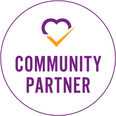
Not One More Alabama is proud to be a Community Partner with The Partnership to End Addiction , an organization that provides personalized support and resources to families impacted by addiction, while mobilizing policymakers, researchers and health care professionals to more effectively address addiction systemically on a national scale.
Not One More Alabama is a not-for-profit 501(c)(3) organization. Donations may be tax-deductible.
Our federal tax ID number is 61-1807663
